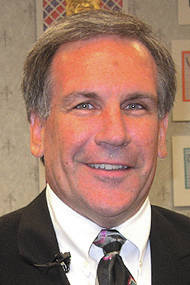
If you are someone who enjoys listening to people with more knowledge and expertise than you possess in fields that interest you, you may want to investigate the TED Talks website.
TED Talks hosts thousands of free online lectures from experts on just about any topic imaginable, and it has become famous for its informative and inspirational messages.
While I have enjoyed TED Talks on a variety of topics, because of my career as an educator, I am most interested in those that focus on education in general, with a particular emphasis on what we have learned about child development.
Recently, I ran across a presentation titled “The Decline of Play,” given by Dr. Peter Gray, who was a research professor for 30 years in the Psychology Department at Boston College. Though now retired from teaching, he continues to conduct and publish research, much of it focusing on the importance of free play in a child’s development.
Dr. Gray’s lecture should be required viewing not only for educators, but for parents and grandparents as well, because he explains how society’s movement away from unstructured play towards a more structured environment where adults are controlling virtually every aspect of a child’s life, both in school and out, has negatively impacted our children.
Those of us who grew up fifty years ago or more ago, as Dr. Gray did, have certainly witnessed an incredible transformation in the growing up experience between when we were children and today.
I often laugh with people my age when we recount how we would leave the house early on a summer morning, hook up with friends, and enjoy unstructured play all day long with nary an adult in sight.
For many of us, the only real rule we had was to “be home before the street lights come on.”
At some point during the last 50 years, someone determined that true learning doesn’t occur unless it is adult-driven.
Therefore, instead of entire neighborhoods of kids congregating on a local ball diamond in their street clothes, randomly selecting their own teams and playing pick-up games with a single baseball and a couple of bats that someone brought from home while umpiring their own games without adult supervision, kids today play (and practice) on sponsored teams with beautiful new uniforms with parent coaches and paid umpires telling the kids every move they should make.
Because, after all, adults always know best, right?
Actually, no.
Dr. Gray contends, as do many other experts on child development, that the formalization of everything child-related has robbed our youth of the important social lessons they learn in unstructured play; skills such as developing physical skills and remaining fit, solving problems on their own, learning how to cooperate when in close vicinity with others, taking risks, and experiencing fear without losing their heads, to name just a few.
His research has shown that the development of those skills is every bit as important to a child’s future happiness and success, if not more so, than the academic skills that are constantly emphasized with today’s youth, beginning at a younger and younger age.
Dr. Gray shares many profound views during his presentation, but one of his most sobering comments he made was, “I don’t want to romanticize the 1950’s. There’s a lot of ways in which we’re a much better world today than we were then. But, we are a much worse world for kids.”
To support his contention, Dr. Gray provides rather startling data showing a correlation between the decline of free play and an increase in all sorts of mental disorders in children, particularly with depression and anxiety, and even with an increase in child suicide rates.
In fact, he suggests longitudinal data shows that, “Children are more depressed today than they were during the Great Depression and more anxious today than during the Cold War.” And, he believes it is a direct result of the environment adults have created for them.
How sad is that?
At any rate, Dr. Gray provides a very unique perspective on the importance of free play in a child’s life. I encourage you to set aside sixteen minutes and watch what he has to say.
It will be time well spent.


